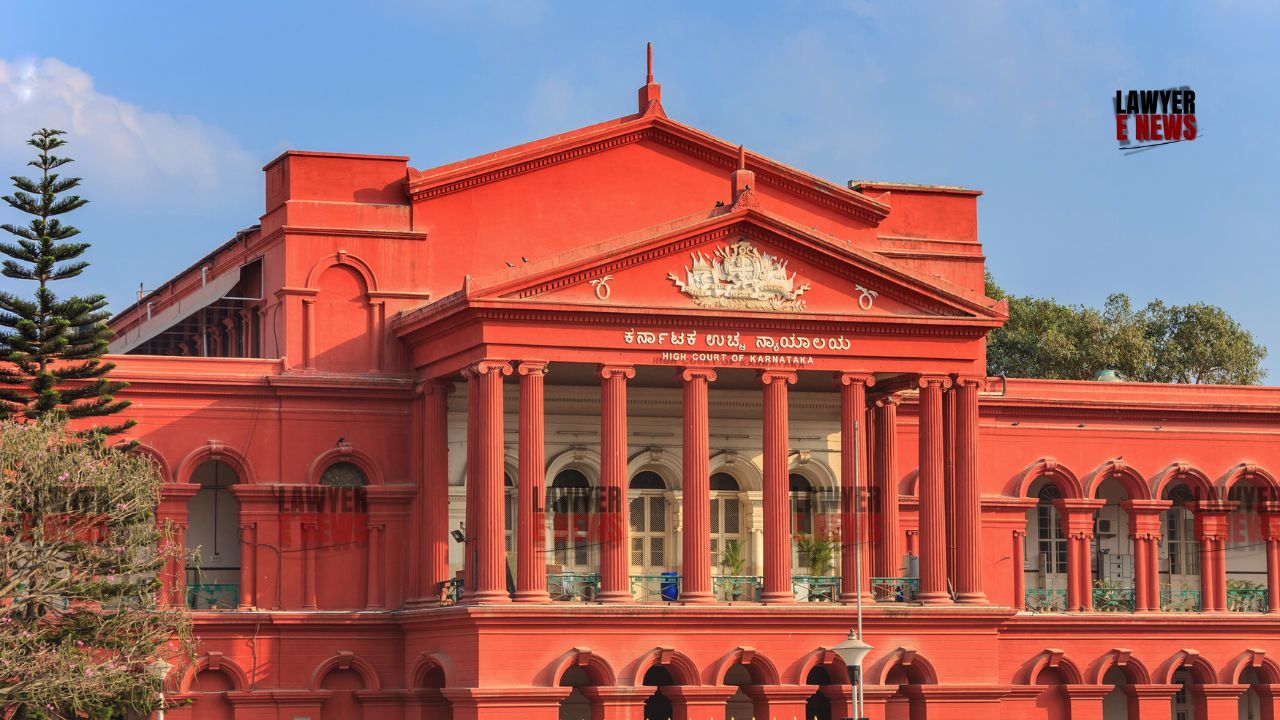-
by sayum
14 February 2026 2:22 PM



High Court confirms only subsisting contracts disqualify candidates under Section 12(h) of the Karnataka Gram Swaraj and Panchayat Raj Act.
The High Court of Karnataka, in its judgment on May 9, 2024, dismissed a writ petition challenging an election tribunal's decision regarding disqualification criteria under Section 12(h) of the Karnataka Gram Swaraj and Panchayat Raj Act, 1993. The court, presided over by Justice S. Sunil Dutt Yadav, clarified that disqualification applies solely to subsisting contracts with the Gram Panchayat, aligning with a purposive interpretation to prevent absurd consequences.
The petitioner, Sri B. T. Kumar, contested the election of Sri B. N. Kumar to the Beeruhalli Gram Panchayat, asserting that B. N. Kumar was disqualified under Section 12(h) of the Karnataka Gram Swaraj and Panchayat Raj Act, 1993. This section disqualifies individuals who have any share or interest in any work done by the Gram Panchayat. The election tribunal initially rejected the petition, concluding that the disqualification only applied to ongoing contracts at the time of the election notification. The petitioner sought to quash this decision and declare himself the successful candidate.
The primary contention revolved around the interpretation of Section 12(h). The petitioner argued for a literal interpretation, suggesting that any past work done for the Gram Panchayat should trigger disqualification. In contrast, the respondents, supported by the tribunal’s decision, argued for a purposive interpretation, limiting disqualification to current contracts.
Justice Yadav underscored the legislative intent behind Section 12(h), aimed at preventing conflicts of interest. He noted, "The conflict of interest that is sought to be taken care of would come into play only when the private interest of the member flowing under the contract could be furthered by sacrificing the public interest of the Panchayat." Therefore, the court concluded that only ongoing contracts at the time of election notification should trigger disqualification.
The court applied the principles of the Heydon’s Rule (Mischief Rule), purposive interpretation, and the Golden Rule of statutory interpretation. Justice Yadav remarked, "Where plain language when sought to be applied gives rise to an unreasonable result or an absurd consequence, the Court can interpret the words appropriately by having recourse to the Golden Rule."
The court emphasized that the legislative intent was to avoid conflicts of interest and not to disqualify individuals for any past engagements with the Gram Panchayat. This interpretation was reinforced by a clarification issued by the Karnataka State Election Commission, which stated that disqualification under Section 12(h) only applies where there is an existing contract at the time of the election notification.
Justice Yadav noted, "The plain language cannot be given effect to, and recourse to the 'Golden Rule' can be had so as to ensure that the unintended and absurd consequences of applying the plain language could be avoided."
The High Court’s ruling upholds the Election Tribunal’s decision, clarifying the scope of disqualification under Section 12(h) of the Karnataka Gram Swaraj and Panchayat Raj Act, 1993. By affirming that only subsisting contracts trigger disqualification, the judgment aligns with the legislative intent to prevent conflicts of interest without leading to unreasonable disqualification of candidates based on past engagements. This decision will have significant implications for future electoral disputes, reinforcing a balanced interpretation of disqualification criteria.
Date of Decision: May 9, 2024
